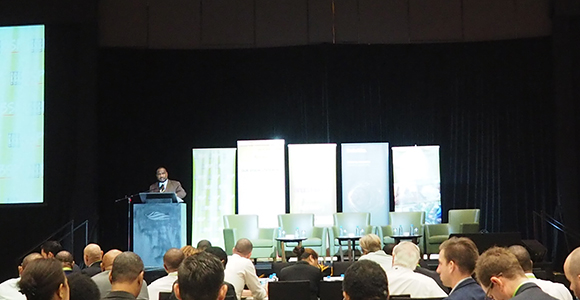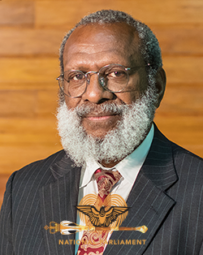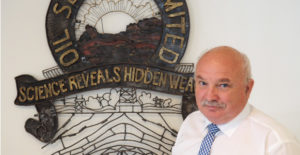Prime Minister James Marape told the 2nd Speaker’s Investment Summit in Port Moresby last week that the government would move quickly address ‘misunderstandings’ about the US$10 billion Papua LNG project. Putting the move in context, Managing Director of Oil Search, one of the partners in the gas project, said such discussions are ‘nothing new’ in Papua New Guinea.

Prime Minister Marape addresses the 2nd Speaker’s Investment Summit in Port Moresby last week. Credit: BAI
New Papua New Guinea Prime Minister James Marape said that his government would be working in the next three weeks to ‘solve some issues about misunderstandings’ on the Papua LNG project.
‘I am all about maximising gains in the resources sector,’ Marape told the 2nd Speaker’s Investment Summit, a forum held last week in Port Morebsy with the aim of improving communication between government and business.
The Prime Minister’s comments follow reports that the newly-appointed Petroleum Minister Kerenga Kua, would ‘review’ the Papua LNG project agreement signed in April this year between the previous O’Neill Government and the developers Total, ExxonMobil and Oil Search.
Kua said it would be reviewed to ensure that it was signed ‘in compliance with all applicable laws.’
He also reportedly said that the Oil and Gas Act has to be re-examined ‘to see at what levels it can be adjusted and increased, without making an investment unprofitable for other shareholders.’
‘The recent political changes that we have seen are really nothing particularly new to investments in PNG.’
Marape explained that the government’s intention is to check that the laws have been observed correctly, and to ‘remove impediments in the system that impede doing business’.
He said he still expected that Papua LNG should start providing returns in the mid-2020s. This goal, and the fact that he specifically referred to a three-week review period, suggests that his government wants to avoid delaying the project.
Debates
Speaking at the 35th Australia-PNG Business Forum last week, Oil Search’s Managing Director, Peter Botten, said that the current debate about the Papua LNG project was not unusual.
‘I have seen eight prime ministers over the 26 years I have been here. And the recent political changes that we have seen are really nothing particularly new to investments in PNG.
‘The discussions and debate going on right now are nothing new. I think we have to put that in context.’
He said Oil Search’s future is ‘very much inexorably linked to the prosperity of this country,’
‘Over the years, we have been very much instrumental in promoting PNG as an attractive destination—as a stable, great place to invest.’
‘If you have just about all your assets in PNG, your business is very much driven by sensitivities—and business and social issues tend to intertwine.’
‘One challenge that must be addressed is Papua New Guinea’s rapid population growth.’
He observed that Oil Search is a bellwether (leading indicator) for investor confidence in the country. Political instability and changes of government, he said, routinely lead to share price underperformance for the company.
‘We are very confident that we can work our way through this and work towards a sensible solution for all.’
Balance
Botten acknowledged that, when proceeding with oil and gas projects, there must be a consideration of interests of all stakeholders.
‘We fully recognise that there must be a fair balance of value between the country and the people, and investors.
‘That fair value needs to be demonstrated and discussed out. It is fundamental to the long term project’s sustainability.
‘We also wish to work with government to improve the distribution processes that deliver benefits into villages and people. That is certainly an area where I think improvements can be made.’
Social changes
Botten also emphasised that mineral resources developers could not ignore the social challenges that Papua New Guinea faces.
He noted that when the country gained independence in 1975, its population was about two million. Now, it’s 8.5 million and that number is set to double by 2040.
‘One of the challenges in our project areas is the growing youth bubble, with about 60 per cent of the population under 25 and 40 per cent under 15.
‘Without addressing things like that, we will not have a stable operating environment going into the future.
‘We really don’t have a business choice but to work with government, and other partners, on solutions to some of these social challenges.’










Speak Your Mind